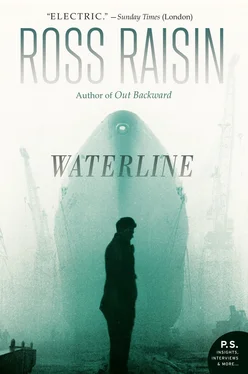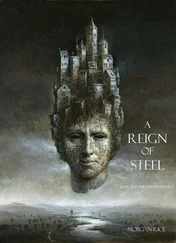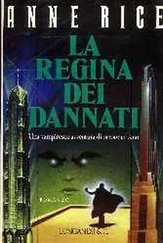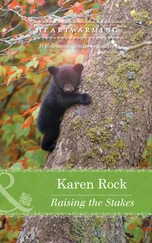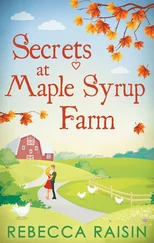Ross Raisin - Waterline
Здесь есть возможность читать онлайн «Ross Raisin - Waterline» весь текст электронной книги совершенно бесплатно (целиком полную версию без сокращений). В некоторых случаях можно слушать аудио, скачать через торрент в формате fb2 и присутствует краткое содержание. Год выпуска: 2012, Издательство: Viking, Жанр: Современная проза, на английском языке. Описание произведения, (предисловие) а так же отзывы посетителей доступны на портале библиотеки ЛибКат.
- Название:Waterline
- Автор:
- Издательство:Viking
- Жанр:
- Год:2012
- ISBN:нет данных
- Рейтинг книги:3 / 5. Голосов: 1
-
Избранное:Добавить в избранное
- Отзывы:
-
Ваша оценка:
- 60
- 1
- 2
- 3
- 4
- 5
Waterline: краткое содержание, описание и аннотация
Предлагаем к чтению аннотацию, описание, краткое содержание или предисловие (зависит от того, что написал сам автор книги «Waterline»). Если вы не нашли необходимую информацию о книге — напишите в комментариях, мы постараемся отыскать её.
Waterline — читать онлайн бесплатно полную книгу (весь текст) целиком
Ниже представлен текст книги, разбитый по страницам. Система сохранения места последней прочитанной страницы, позволяет с удобством читать онлайн бесплатно книгу «Waterline», без необходимости каждый раз заново искать на чём Вы остановились. Поставьте закладку, и сможете в любой момент перейти на страницу, на которой закончили чтение.
Интервал:
Закладка:
Quietly, stiffly, he gets himself out from the settee. His ears are pure bursting, he’s listening that hard as he edges out from the room and into the corridor, quickening his pace, coming into the kitchen and grabbing the things before getting out the back door. He clicks it softly shut behind him. A quick look at the upstairs window before he reaches the shed, but there’s nothing.
He is sat in the straight-backed hospital chair with the plastic peeling off it and the foam poking out, while she stares out of the window. The white curtain is pulled shut in a horseshoe around them, and there’s the peaceful hum of a dozen sleeping, snoring, dying women in the room outside. Through in the corridor, the faint hurrying patter of nurses’ feet. And beyond the window, where she’s staring, a gardener, whistling himself a tune as his pink head tots in and out of sight behind a hedge. After a while he comes round the near side of it, and he’s got his shirt-sleeves rolled up, it’s that sunny a day. The windows are open, and it’s awful welcome, the freshness of the air outside coming in with his wee tune, pouring into the stale room. All of a sudden there is a fart somewhere outside the curtain — a loud, long, trumpety job — which causes him to chuckle and look at her, but she hasn’t noticed it, she’s still fixed on the gardener. She has been asleep all morning and she’s lying restfully the now as he sits quietly watching her.
A nurse pops her head through the curtain at one point, gives him a smile and disappears again. She didn’t signal she was coming in, it occurs to him when she’s gone. But then what would be the point? She is the one that’s changing her clothes, helping her go to the toilet. There’s no need being discreet any more; it’s past that. Maybe if he’d been sat there himself in the bare scuddy, his balls sticking to the seat, then maybe she’d start giving the signal. He grins. Aye, probably.
There is the gentle hushed sound of a relative talking. Outside, the gardener is lopping the heads off a line of finished flowers at the bottom of the hedge. Still the bright, tireless whistle. He looks at her. Is she listening? Can she hear it? He realizes then that he doesn’t know if she can or not — if she’s listening, if she can see him, or if she’s just staring out at nothing. And that is when he understands. It’s the precise moment, in fact. Maybe she can hear it, maybe she can’t, but either way it doesn’t make any difference because it’s only time now, only time that is in the way. He stands up from the chair to move toward her, and her eyes shift to take him in. He smiles, and brushes the headscarf back to give her a wee kiss on the forehead; then he leaves out of the cubicle to go and get a coffee from the machine down the corridor.
Chapter 13
The biscuits are gone stale. There is the dull snap of wet fibreboard about them now, and the cheese has broke out in green spots and a white frilly moss. He opens the door a nook, pushing against the sludge of wet leaves gathered against it, and slings out what’s left for the birds. No use it going to waste.
The shed isn’t best equipped for this rainy period that’s come on. It gets in under the walls and the door, and drips down off the window. The blankets are pretty damp getting by now. Probably he’ll come down with some horrendous illness and go the way of the cheese. The sparrows the first to find him, to notice he’s copped his whack when they start pecking inside on the lookout for food.
Enough of that. Talk about maunderly. Jesus.
He is running out of shit pits. There’s nay chance he’s going back in the house, with its strange atmosphere and its lack of lights and its mysterious bumping noises up the stairs, so that just leaves the bucket at the back of the shed. He did consider using it before, when he stopped using the house toilet, until he came to his senses and realized that would be mental. Instead, he’d took a corner of the garden, the border on one side where Cathy used to plant her flowers, and used a trowel to dig a line of small pits, each with the mound of soil next to it to cover over after he’s took a crap. But now the line is almost filled. And as well, he needs to get some toilet roll. All he’s got left to use is torn out half-pages of the Southside News . A delicate operation, serious, though it doesn’t make much difference how gently he does it — the backside is getting sorer, and blacker, pasted each day with new articles about tenement regenerations and Roma beatings.
There is a noise coming from outside. A faint, distant, rolling sound. He thinks at first it might be the wind, which is piping cold pea-shooters at his feet from under the door, but he understands after a while that it’s Ibrox. There is a match on. He tunes in the radio, but the commentary isn’t the clearest so he gives that up and listens outside just, waiting for the wind to blow him a favour. It does, and a few times he hears a muffled roar going up. Maybe the new boy is on form. Taken the league by storm this past couple of weeks and making mincemeat of opposition defences. Whatever the score is, it seems like they’re winning, and the result is confirmed for him later, because there’s car horns pamping in the night, together with what sounds like a brawl away on the high street.
Chapter 14
Here they come, the wee chaps. He listens, enjoying the sound of it, as they begin skittering on the concrete outside the shed door. Something aye comforting about the noise of them pecking the ground, tapping, the odd time, on the side of the shed.
Until recently there’d just been the one — probably the same patient guy that’s been coming all the while — but he’s obvious gone and let dab to all his mates that they can come and eat here, and now there’s a whole mob of them. Good for him, no keeping it all to himself. Obviously no an English bird. A genuine Southsider, that sparrow. It’s mostly just bread he’s buying now, each few days when he works himself up to leaving the shed, and he keeps a couple of slices from each loaf aside to put out for them. Sometimes, when he hears them arrive and gets open the door latch, he lays a short trail of crumbs from the outside, into the shed, to see if he can get any of them to come in. There’s one time, he managed it. This tiny head, poking in the door and then following the line, unaware, or otherwise unbothered by the great hulking creature that was keeping still and watching him from the darkness under the table. Sometimes as well he tries to sneak a look outside at them, but each time he does they all fly off, and he has to wait a few minutes until the noise starts again: that small fluttery sound of them out there, getting beasted into their breakfast.
Chapter 15
A dark red car is turning off the high street. It comes past the park and the cemetery, slowing a moment for a pair of old women to cross the road, then continues on until it pulls into a residential street, and a few seconds later parks up against the kerb. A short bald man gets out, followed by a larger, younger man in a pullover. They come through the gate to Mick’s house and stop by the front door. The older man knocks firmly, while the other peers into the living room window. There is no response from inside the house so the older man hunkers down and looks through the letterbox. In a moment he stands up and pushes an envelope through the flap. Then the two men, without speaking, go back through the gate, get into the car and leave.
On the other side of the house, in the shed, Mick is sitting up close to the radio. It is almost out again, the sound distorting quietly like voices inside a hull. He needs batteries — all the ones that were in the house are used up; more bread as well; cash. For now he clicks the radio off and gets the few remaining pages of the paper over for another read, nothing else to occupy his mind now that the morning is by and the sparrows have finished their breakfast and left.
Читать дальшеИнтервал:
Закладка:
Похожие книги на «Waterline»
Представляем Вашему вниманию похожие книги на «Waterline» списком для выбора. Мы отобрали схожую по названию и смыслу литературу в надежде предоставить читателям больше вариантов отыскать новые, интересные, ещё непрочитанные произведения.
Обсуждение, отзывы о книге «Waterline» и просто собственные мнения читателей. Оставьте ваши комментарии, напишите, что Вы думаете о произведении, его смысле или главных героях. Укажите что конкретно понравилось, а что нет, и почему Вы так считаете.
